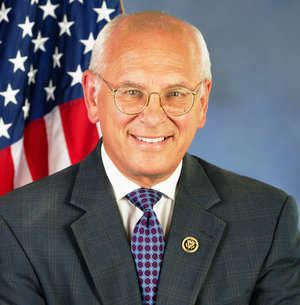
By The Honorable Paul Tonko, United States Representative, New York’s 20th Congressional District, U.S. House of Representatives
Our Earth is in crisis. More frequent and severe droughts, rising sea-levels, extreme weather and ecological damage are already here, with more loss and hardship on the horizon.
As a trained engineer and Chairman of the Energy and Commerce Subcommittee on Environment and Climate Change, I depend on science to inform my policy decisions. Social sciences are especially important to my work because they help reveal how climate change is impacting people and communities. This is invaluable insight for policymakers working to make decisions meant to save lives and build more resilient communities.
Social sciences are a cornerstone of the kind of fact-based inquiry that is crucial for policymakers. Incorporating a wider field of research and investigation can help us unpack important policy questions that would otherwise go unanswered.
For example, social and behavioral research is opening up new ways to warn communities before dangerous weather hits, to understand and respond to the ways floods, droughts, and heat waves impact mental health, and to support the people who are working to rebuild.
Historians and archaeologists reveal how past societies have managed changing climates to help build more resilient communities.
Psychologists have offered strategies for working with individuals who identify as deniers of the climate crisis and have provided key insights on public perception of climate-based policies.
Anthropologists can show us how mass migration impacts national identity and culture, and help us understand and manage group tensions. They can offer background on communities affected by climate change and the unique impact climate change will have on their identity. This is more than a thought experiment for small island nations such as the Maldives.
Economists can help us understand the most effective ways to deliver disaster relief.
These are essential insights for anyone looking to develop real, comprehensive climate solutions.
One way or another, this crisis will impact us all. Rising sea levels and devastating coastal storms push communities further inland or subsume their homes altogether, creating new challenges for housing, basic services including food and water delivery, and much more.
Time is of the essence in combating the worst effects of our changing climate. We cannot afford to ignore the lessons of sound science, including the unique contributions of the many powerful sciences. I call on my colleagues in Congress to deliver the strong support needed to advance our understanding through social science, and to include its social, cultural, and behavioral insights when making policy decisions.
Why social science? Because social science will play a key role in helping us solve the climate crisis, and every other major challenge we face, together.
CONGRESSMAN PAUL TONKO represents New York’s 20th Congressional District in the U.S. House of Representatives. He is serving his sixth term, after first being sworn into Congress in 2009. Tonko serves as Chairman of the Energy and Commerce Subcommittee on Environment and Climate Change. He is also a member of the Science, Space and Technology Committee and the Natural Resources Committee and a Co-Chair of the Sustainable Energy and Environment Coalition (SEEC), the green voice in Congress. Prior to serving in Congress, Tonko was President and CEO of the New York State Energy Research and Development Authority (NYSERDA). Before that, he served in the New York State Assembly for 25 years, 15 of which spent as Chairman of the Committee on Energy.